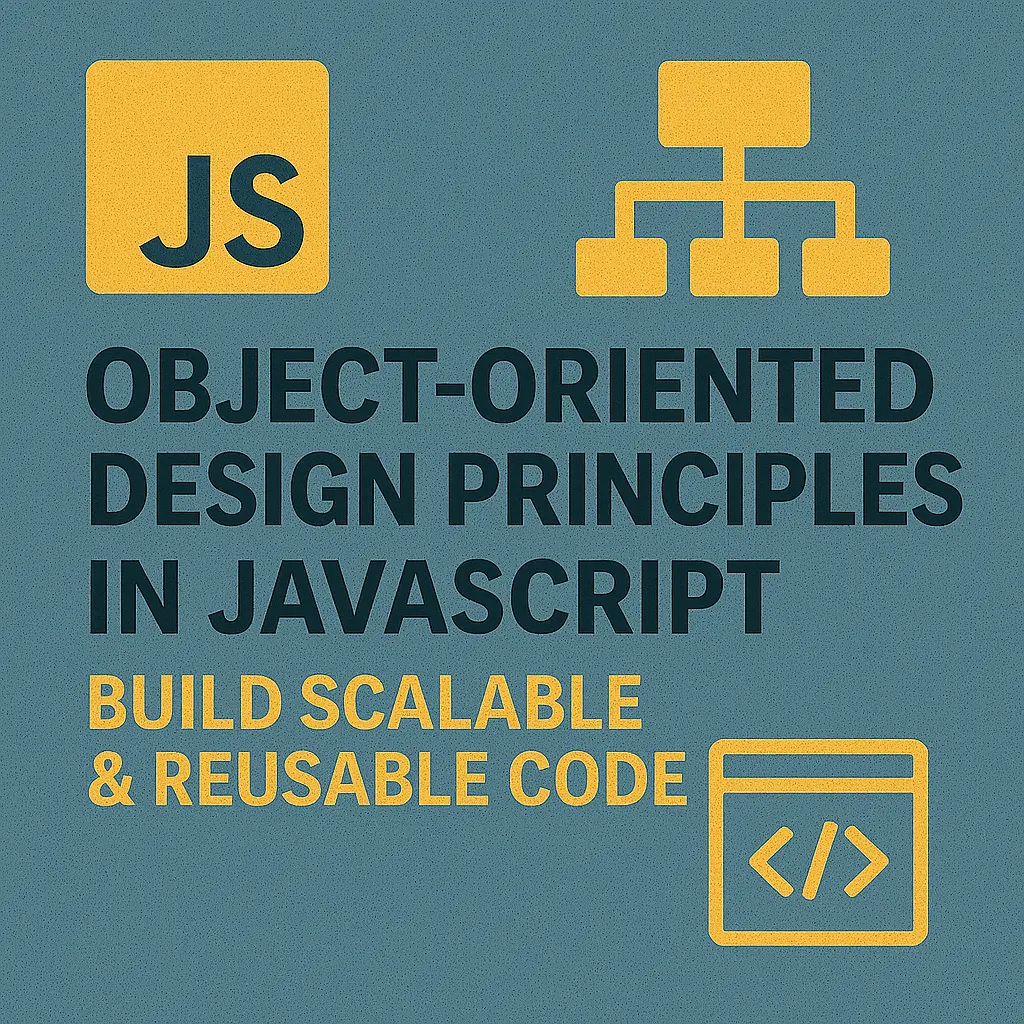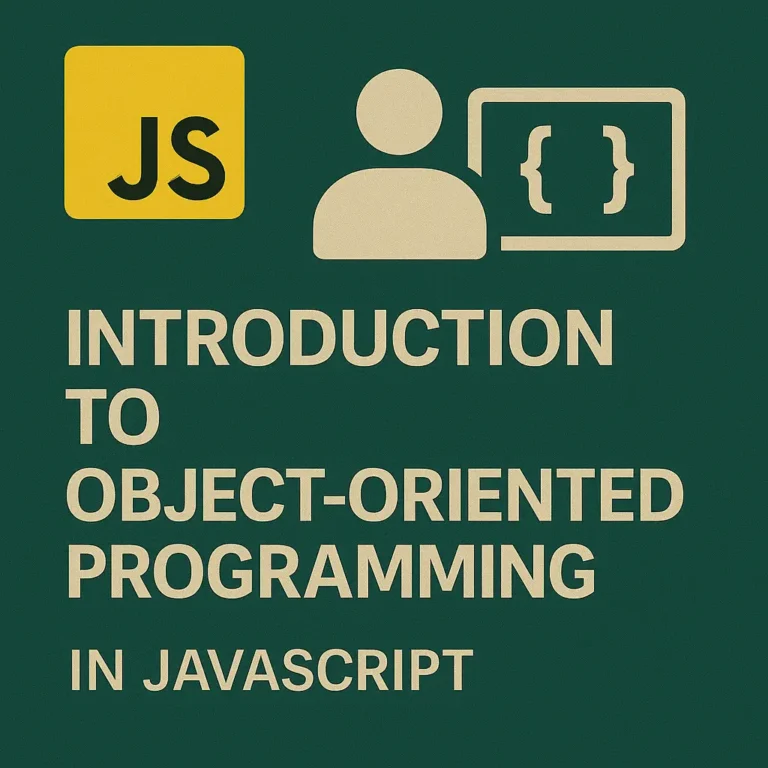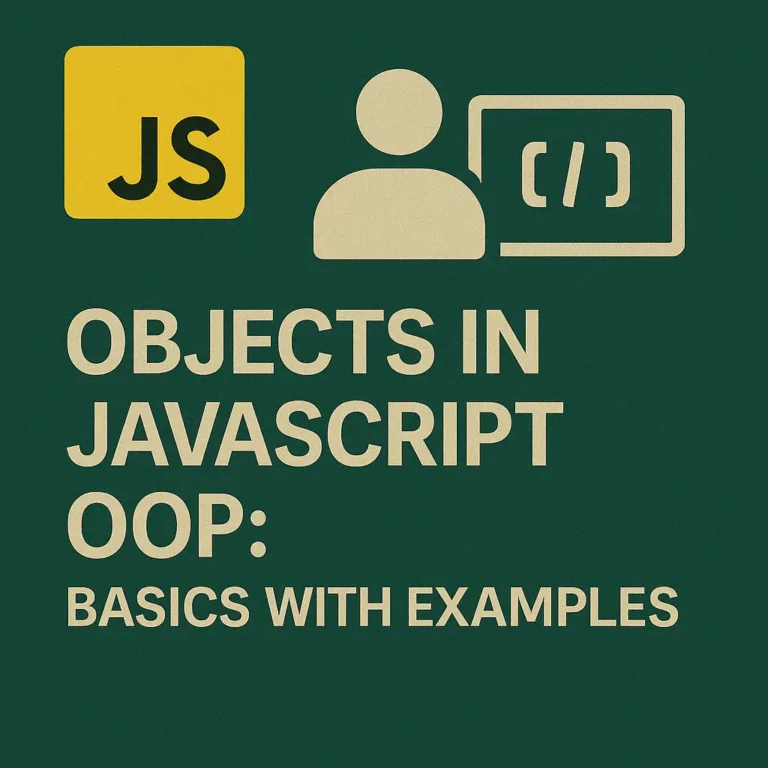In this article, we’ll delve into the essential object-oriented design principles in JavaScript, exploring how concepts like DRY (Don’t Repeat Yourself), KISS (Keep It Simple, Stupid), and YAGNI (You Aren’t Gonna Need It) contribute to writing clean, maintainable, and efficient code. We’ll also provide practical examples to illustrate the application of these principles in object-oriented JavaScript development.
Introduction to Design Principles
Design principles are fundamental concepts that guide the development of software systems. They encapsulate best practices, guidelines, and philosophies that promote code quality, maintainability, and scalability. While there are numerous design principles, some of the most prominent ones include:
DRY (Don’t Repeat Yourself):
This principle emphasizes the importance of avoiding code duplication by abstracting common functionality into reusable components.
KISS (Keep It Simple, Stupid):
KISS advocates for simplicity in design and implementation, encouraging developers to favor straightforward solutions over complex ones.
YAGNI (You Aren’t Gonna Need It):
YAGNI advises against implementing functionality until it’s actually needed, discouraging premature optimization and over-engineering.
SOLID Principles:
SOLID is an acronym for five object-oriented design principles: Single Responsibility, Open/Closed, Liskov Substitution, Interface Segregation, and Dependency Inversion. These principles promote code modularity, extensibility, and maintainability.
Applying Design Principles in OOP
Object-oriented programming (OOP) provides a powerful paradigm for structuring and organizing code. By applying design principles within the context of OOP, developers can create codebases that are clean, modular, and flexible.
Let’s consider an example of applying the SOLID principles in JavaScript:
// Single Responsibility Principle (SRP)
class Calculator {
add(a, b) {
return a + b;
}
subtract(a, b) {
return a - b;
}
multiply(a, b) {
return a * b;
}
divide(a, b) {
return a / b;
}
}
In this example, the Calculator class violates the Single Responsibility Principle (SRP) by performing multiple tasks (i.e., arithmetic operations). To adhere to SRP, we can refactor the class into smaller, more focused classes:
class Addition {
execute(a, b) {
return a + b;
}
}
class Subtraction {
execute(a, b) {
return a - b;
}
}
class Multiplication {
execute(a, b) {
return a * b;
}
}
class Division {
execute(a, b) {
return a / b;
}
}
By separating each arithmetic operation into its own class, we adhere to SRP, making the codebase more modular and maintainable.
Writing Clean and Maintainable Object-Oriented Code
Writing clean and maintainable object-oriented code requires attention to detail and adherence to best practices. Here are some tips to achieve this:
Follow Naming Conventions:
Use descriptive and meaningful names for classes, methods, and variables to enhance code readability.
Avoid God Objects:
Refrain from creating classes that have too many responsibilities or dependencies. Split large classes into smaller, more focused ones.
Encapsulate Logic:
Encapsulate related functionality within classes and methods to promote code modularity and reusability.
Keep Classes Cohesive:
Ensure that classes have a single, well-defined purpose and avoid mixing unrelated functionality.
Document Your Code:
Provide clear and concise documentation for classes, methods, and important code sections to aid understanding and maintenance.
Write Unit Tests:
Implement unit tests to validate the behavior of classes and methods, ensuring that they work as intended and remain stable across changes.
Conclusion
Object-oriented design principles provide a framework for writing clean, maintainable, and scalable code in JavaScript. By adhering to principles like DRY, KISS, YAGNI, and SOLID, developers can create codebases that are easier to understand, extend, and maintain. By applying these principles and following best practices, developers can craft elegant solutions that stand the test of time and meet the evolving needs of modern software development.






